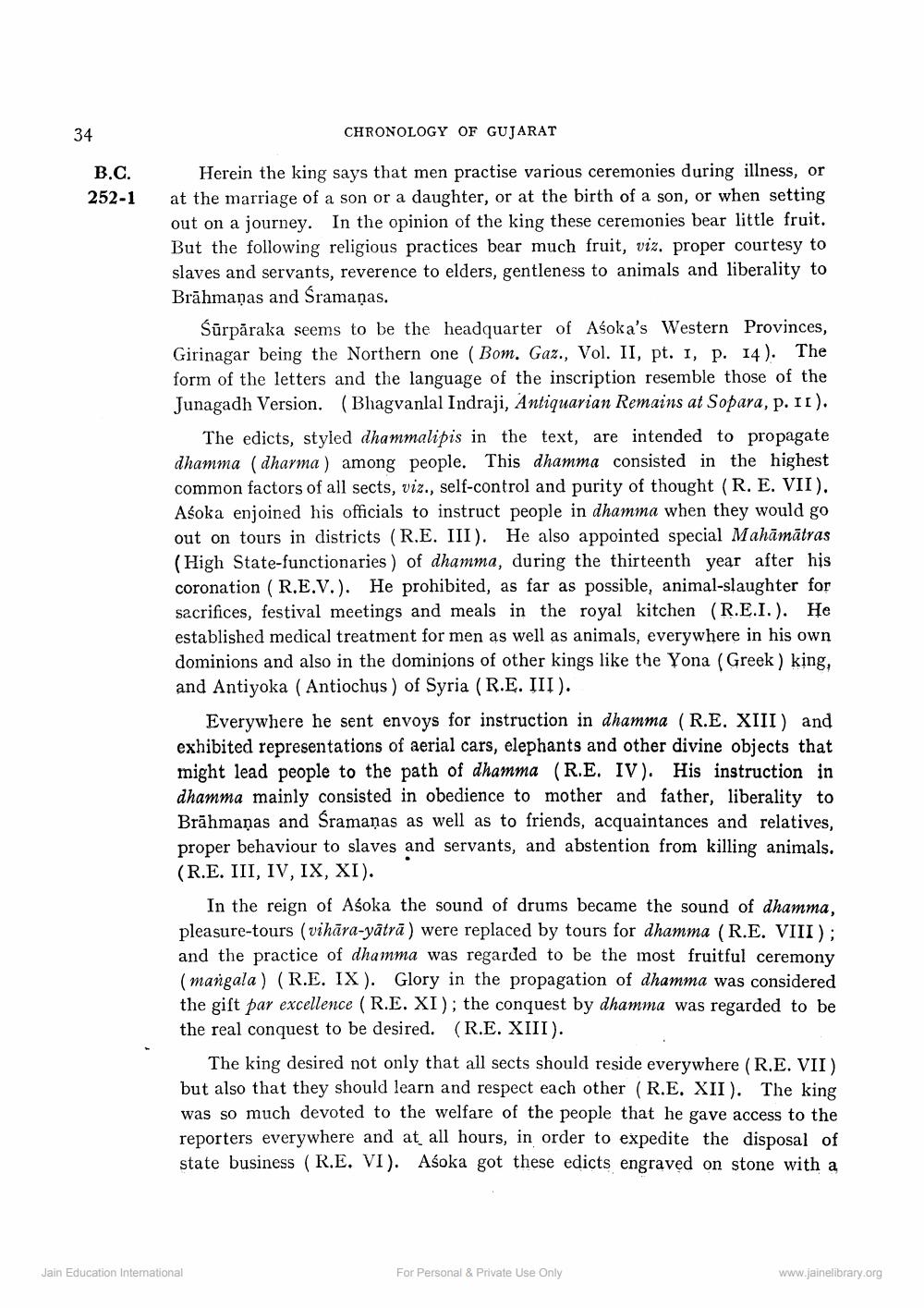________________
34
CHRONOLOGY OF GUJARAT
B.C. 252-1
Herein the king says that men practise various ceremonies during illness, or at the marriage of a son or a daughter, or at the birth of a son, or when setting out on a journey. In the opinion of the king these ceremonies bear little fruit. But the following religious practices bear much fruit, viz. proper courtesy to slaves and servants, reverence to elders, gentleness to animals and liberality to Brāhmaṇas and Sramaņas.
Śūrpăraka seems to be the headquarter of Asoka's Western Provinces, Girinagar being the Northern one (Bom. Gaz., Vol. II, pt. 1, p. 14). The form of the letters and the language of the inscription resemble those of the Junagadh Version. (Bhagvanlal Indraji, Antiquarian Remains at Sopara, p. 11).
The edicts, styled dhammalipis in the text, are intended to propagate dhamma (dharma) among people. This dhamma consisted in the highest common factors of all sects, viz., self-control and purity of thought (R. E. VII). Asoka enjoined his officials to instruct people in dhamma when they would go out on tours in districts (R.E. III). He also appointed special Mahāmātras (High State-functionaries) of dhamma, during the thirteenth year after his coronation (R.E.V.). He prohibited, as far as possible, animal-slaughter for sacrifices, festival meetings and meals in the royal kitchen (R.E.I.). He established medical treatment for men as well as animals, everywhere in his own dominions and also in the dominions of other kings like the Yona (Greek) king, and Antiyoka ( Antiochus ) of Syria (R.E. III).
Everywhere he sent envoys for instruction in dhamma (R.E. XIII) and exhibited representations of aerial cars, elephants and other divine objects that might lead people to the path of dhamma (R.E. IV). His instruction in dhamma mainly consisted in obedience to mother and father, liberality to Brāhmaṇas and Sramaņas as well as to friends, acquaintances and relatives, proper behaviour to slaves and servants, and abstention from killing animals. (R.E. III, IV, IX, XI).
In the reign of Asoka the sound of drums became the sound of dhamma, pleasure-tours (vihāra-yātrā) were replaced by tours for dhamma (R.E. VIII); and the practice of dhamma was regarded to be the most fruitful ceremony (mangala ) (R.E. IX). Glory in the propagation of dhamma was considered the gift par excellence (R.E. XI); the conquest by dhamma was regarded to be the real conquest to be desired. (R.E. XIII).
The king desired not only that all sects should reside everywhere (R.E. VII) but also that they should learn and respect each other (R.E. XII). The king was so much devoted to the welfare of the people that he gave access to the reporters everywhere and at all hours, in order to expedite the disposal of state business (R.E. VI). Asoka got these edicts engraved on stone with a
Jain Education International
For Personal & Private Use Only
www.jainelibrary.org




